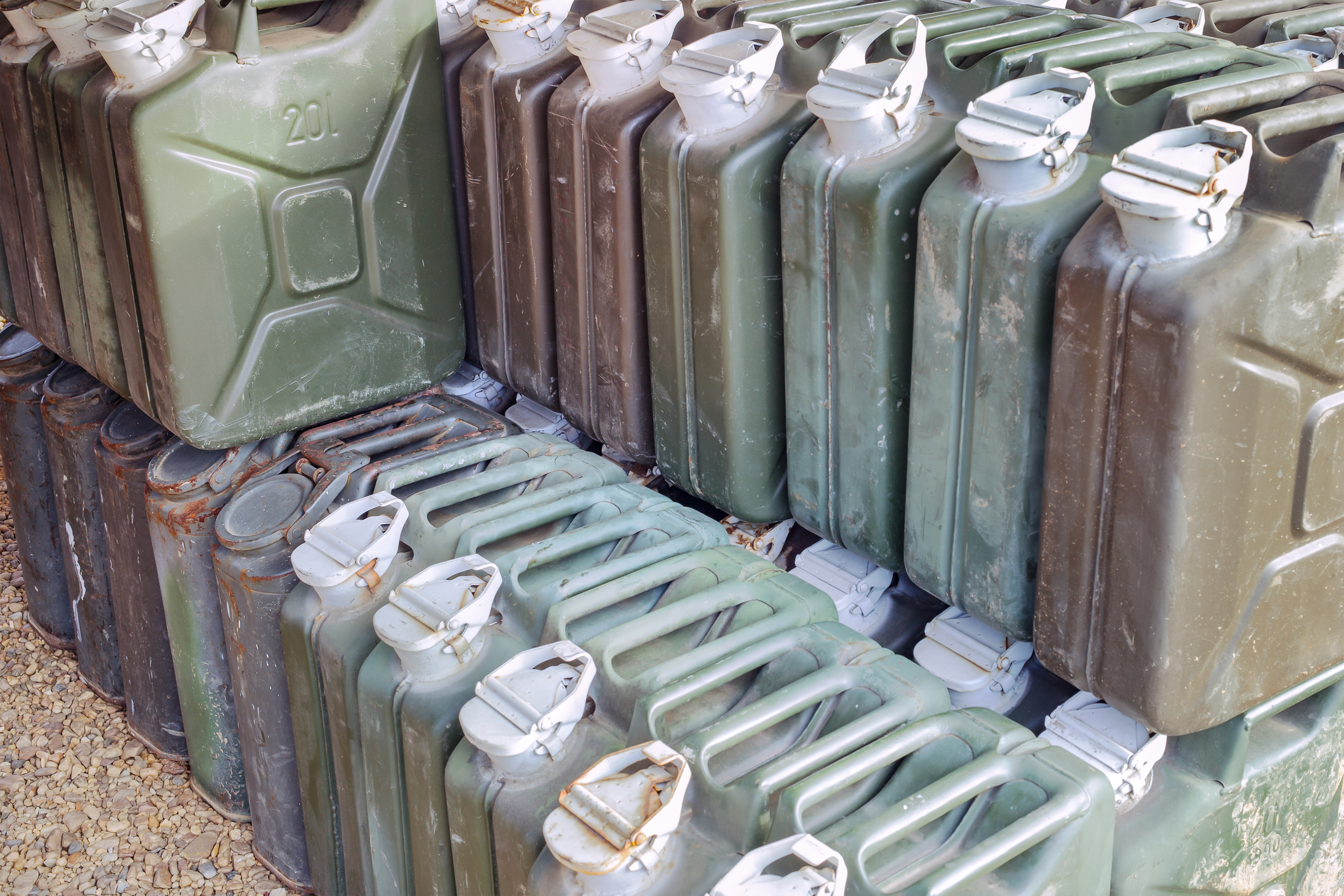Fuel is one thing that many preppers tend to forget about. They stock up on food and water, stash away general medications, and load up on clothing, blankets, and other necessities, but they overlook sources of fuel. When something happens on a large-scale, whether it’s an environmental or man-made disaster, the odds are good that all of the available sources of fuel will cease to work. How can you heat your home without gas and electricity? What about alternative sources of power? You’ll need to cook food and do what you need in order to survive somehow, and fuel plays an important role in that.
Five Main Types of Fuel
Before you run out to the store and begin stocking up on fuel, you’ll need to know a few crucial things. There are five main types of it that you can stash, just in case. Here’s a quick breakdown of everything that you need to know.
Propane
You can find propane tanks in many different sizes. This flammable gas is very easy to obtain, and it has multiple uses. Just make sure to stay within the laws in your area. There might be some regulations regarding how much propane you can have on hand.
Diesel Fuel
Diesel is much more stable than gasoline, and it can be used to power generators, as well as diesel-fueled vehicles. It’s recommended to keep diesel fuel only if you need it since you do need to care for it properly. For example, you’ll have to add in either nitrogen (this is called nitrogen blanking) or a special fuel additive to keep it in good shape for the long term.
>>> This Happens To Your Brain If You Don’t Sleep Enough <<<
Firewood
Many survivalists sing the praises of firewood. It’s very easy to obtain – in some cases, you can get it from your own backyard. On top of this, there aren’t any major laws against storing it. You can keep as much of it as you want on your own property. In general, there are two types of wood out there – softwood and hardwood. The latter is what you want because it burns slowly and will stay good in storage for a long period of time. However, before you begin storing all of the hardwood that you can find, you’ll need to know how to season it. Wood that’s seasoned will burn better. Start by chopping those logs into half lengthwise, and then into appropriately sized pieces. After that, store it in a cool and dry place for at least a year.
Standard Gasoline
Regular unleaded gasoline is also good to have on hand. If something happens, you’ll need to get to your hideaway location or at the very least, out of your general area. It’s always good to have a few gallons of gas on hand, stored because you might have a very hard time getting to a gas station. If everyone else beats you there, you may find that their tanks are empty. In general, keep around 25 to 30 gallons of gas in proper containers. Add some stabilizer additives to ensure that it remains in good condition, and make sure to keep those gas cans away from heat and light.
Kerosene
Kerosene is extremely useful and it doesn’t degrade as quickly as gasoline. You can use it to power devices, from a grill to a generator, and then some. Buying and storing it is easy since many stores sell kerosene in proper containers. Just make sure to keep it in a cool, dry place and make sure to check on your containers every so often to ensure that they aren’t leaking.


